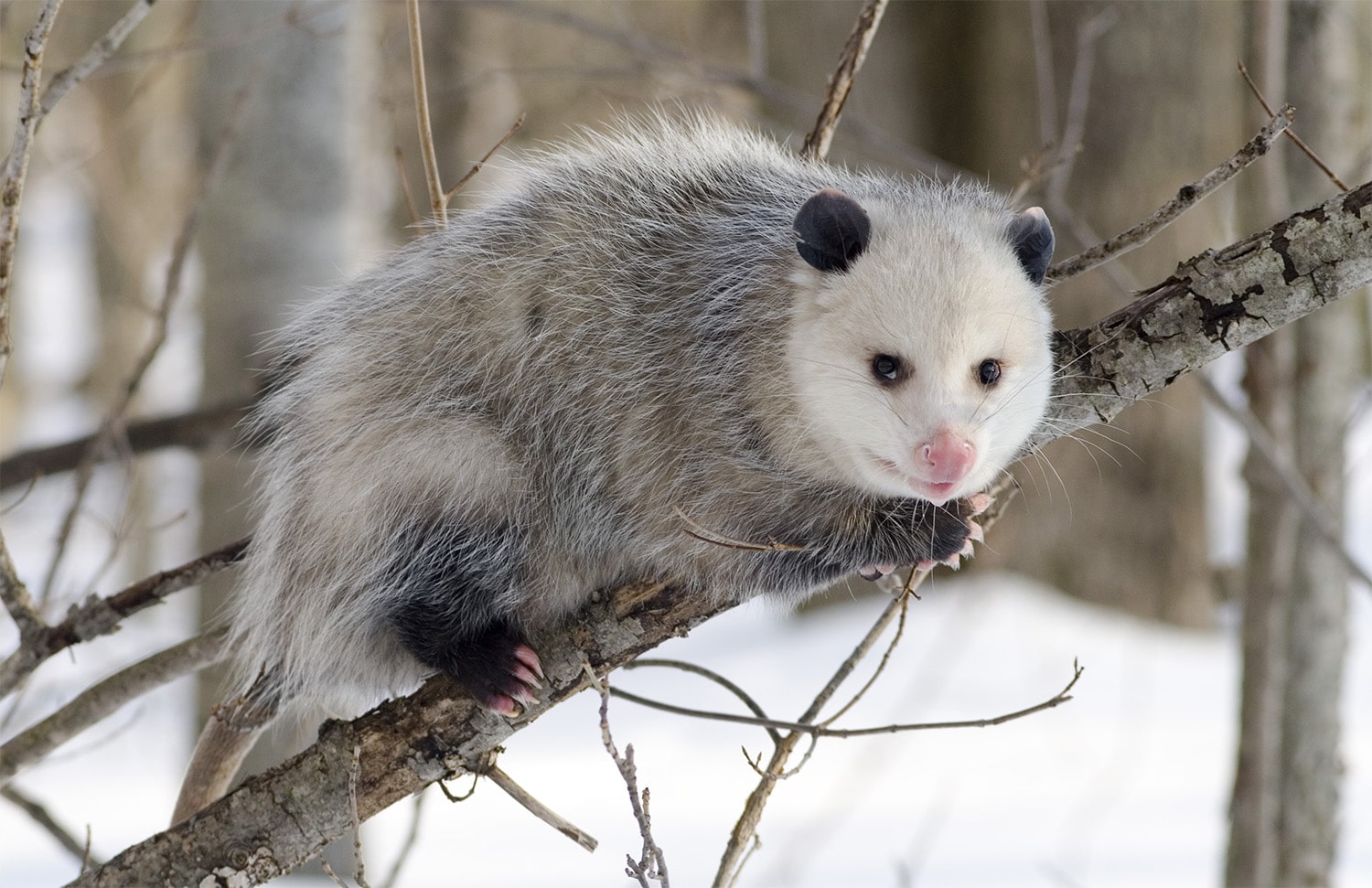
32 interesting facts about opossums
- 👁️ 305
Opossums, often simply called possums in the Americas, are intriguing creatures that play a unique role in their ecosystems. These animals are notable for their ability to adapt to a wide range of habitats and their somewhat misunderstood nature. As North America’s only marsupial, they carry their young in a pouch and have several unique traits that help them survive in both wild and urban environments. Their presence in folklore and popular culture often misrepresents their beneficial impact on controlling insect and rodent populations.
- Opossums are the only marsupials found naturally in North America.
- They have a remarkable ability to play dead when threatened, a behavior known as “playing possum.”
- An opossum’s diet is remarkably diverse, including fruits, nuts, insects, small animals, and even ticks.
- They have a prehensile tail, which can be used to grasp and manipulate objects.
- Opossums are immune to the venom of many snakes, including pit vipers like rattlesnakes and copperheads.
- Female opossums can give birth to up to 20 babies in one litter, though not all typically survive.
- Baby opossums are called joeys, similar to kangaroos, and are extremely undeveloped at birth.
- Joeys immediately crawl into the mother’s pouch where they continue to develop.
- Opossums have more teeth than any other North American mammal, totaling 50.
- They have a low body temperature compared to other mammals, which helps make them resistant to many common diseases.
- Opossums are often seen as pests, but they help control ticks, thus reducing the spread of Lyme disease.
- They can hang by their tails for short periods but do not sleep hanging from trees as myths suggest.
- Opossums are nocturnal, meaning they are active during the night.
- Despite their solitary nature, opossums are quite peaceful and will avoid confrontations.
- Their lifespan is relatively short for their size; most live only about two to four years in the wild.
- They have an impressive memory when it comes to remembering where food is located.
- Opossums can play dead for hours, emitting a smell of decay to enhance the deception.
- Their eyes are particularly adapted to the night lifestyle, having more rods than cones.
- Opossums are often mistakenly thought to carry rabies due to their drooling defense mechanism.
- They are highly resistant to rabies because of their low body temperature.
- Opossums are excellent climbers, thanks to their sharp claws and flexible tail.
- They are believed to have split from the basic South American marsupials around 65 million years ago.
- When threatened, opossums can involuntarily enter a shock-like state, which can last for hours.
- Opossums are relatively quiet but will hiss or growl when threatened.
- They are capable of cleaning themselves much like cats do.
- In colder regions, opossums can lose parts of their tails or ears to frostbite.
- Opossums rarely build their own dens, preferring to take over abandoned burrows or tree hollows.
- They are largely immune to the poison of many snakes and will eat them regularly.
- Opossums have been around for at least 70 million years.
- They often feign aggression to scare off predators but seldom attack.
- Despite their adaptability, habitat loss affects their populations in some areas.
- Opossums can swim well and will often enter water to escape predators or to search for food.
In conclusion, opossums are fascinating creatures that demonstrate remarkable adaptability and resilience. With their unique biological traits and behaviors, they play a crucial role in maintaining ecological balance through pest control. Despite common misconceptions, these nocturnal marsupials contribute positively to their environments, making them more than just curious backyard visitors. Their ability to thrive in diverse and changing habitats speaks to their evolutionary success and the intricacies of their kind.
Opossums, often simply called possums in the Americas, are intriguing creatures that play a unique role in their ecosystems. These animals are notable for their ability to adapt to a wide range of habitats and their somewhat misunderstood nature. As North America’s only marsupial, they carry their young in a…